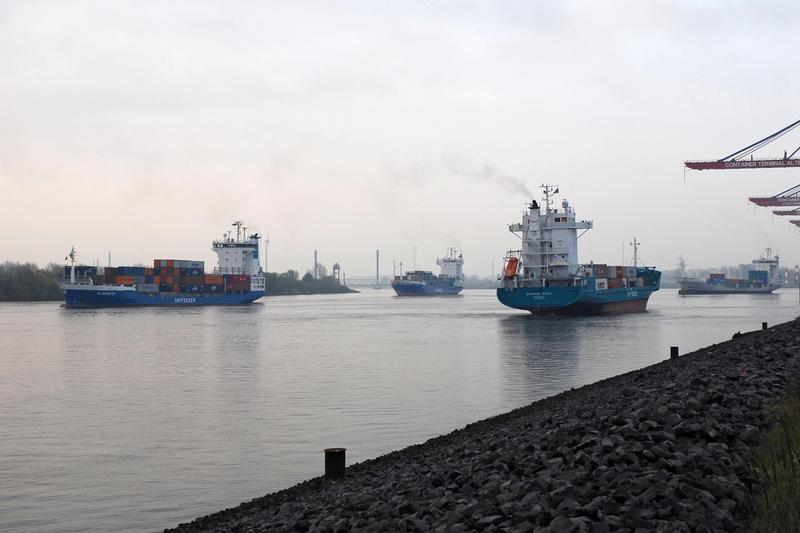The global economy has been suffering the effects of the COVID-19 pandemic for the better part of the last year. The shipping sector was hit especially hard and is still expecting to see a decrease in transport volumes one year later. Meanwhile, major issues such as climate change and sustainability slipped into the background. Although inland navigation, short sea shipping and river-sea shipping are already CO2-efficient, there is still potential to make the European fleets greener, the Port of Hamburg press release said.
During digital workshop "Greening of Inland Navigation, Short Sea Shipping and River-Sea Shipping", six high-level speakers presented and discussed different the sectors potentials and issues, while at the same time presenting solutions to make these modes of transport even more climate- and environment-friendly.
In her key note speech, Theresia Hacksteiner, Secretary General EBU, emphasised that the Inland Waterway Transport (IWT) sector plays a key role in realising the EU’s climate goals. To unfold the sector’s full potential, however, a strong policy framework as well as investments in infrastructure and fleet renewal are essential. Between 2021 and 2027, the sector’s ifnrastructure and ports needs are around EUR 47 billion, where it is currently only receiving less than EUR 2 billion CEF Funding. Besides the obvious lack of financial support for fleetrenewal towards zero emission, the sector needs access to research programmes to test and validate greening the fleet actions, Hacksteiner stated.
Policy frameworks and subsidies are also key aspects in the process of energy transition, according to Saeed Mohebbi, Advisor electrical safety and alternative fuels at the Swedish Transport Agency. He highlighted the importance of regulations and guidelines on a national and regional level to help companies and authorities make the transition from fossil to alternative fuels.
For ARKON Shipping, a medium-sized shipping company from Haren/Ems with a focus on European Short Sea Trade, the alternative fuel solution to go with is methanol, according to Project Manager Werner Plenkmann. As of today, retrofitting existing engines is already possible and regular (also known as grey) methanol is competitive compared with other alternative fuels. Sufficient availability of grey methanol already exists, he explained, a green methanol economy will be based on the increasing demand and will replace grey methanol step by step in the next years.
Accordingly, Ingvar Landälv, who has more than 45 years' experience in gasification technology-based process plants, broke down the complex chemical processes of bio-methanol production for the audience and presented a list of methanol projects currently under development. Unfortunately, he noted, the amount of green methanol on the market does not yet match the amount actually needed to cover all the planned projects. These still depend on subsidies as already emphasised by Theresia Hacksteiner. However, this is the case for all renewable fuels. Research in recent years shows that methanol is often found as one of the most promising ones with the lowest level of subsidies needed.
Overall, it is nearly impossible to predict which alternative fuels and technologies are the most promising, said Friederike Dahlke-Wallat, Naval Architect at the Development Centre for Ship Technology and Transport Systems (DST). Their contributions to the CCNR studies on energy transition towards a zero-emission inland navigation sector shows how a future alternative fuel mix could potentially look like, but in reality it is a question of cost and infrastructure. The best option now is to take it case-by-case and become aware of the obstacles and challenges that need to be overcome in order to make inland navigation greener, she explained.
Benjamin Weinacht also underlines this case-by-case strategy when it comes to the certification and regulation of alternative fuels. As managing director at CMB Germany, he sees great potential in hydrogen dual-fuel engines that promise a wide range of industrial applications, from ships to trains and power generators. CMB has an entire division (CMB.TECH) dedicated to hydrogen powered technology and infrastructure to produce and distribute the clean fuels of the future. Weinacht emphasises the importance of first-movers in this field, as they lay the groundwork for large-scale application. In his words: „Small steps create big success.“
All news




